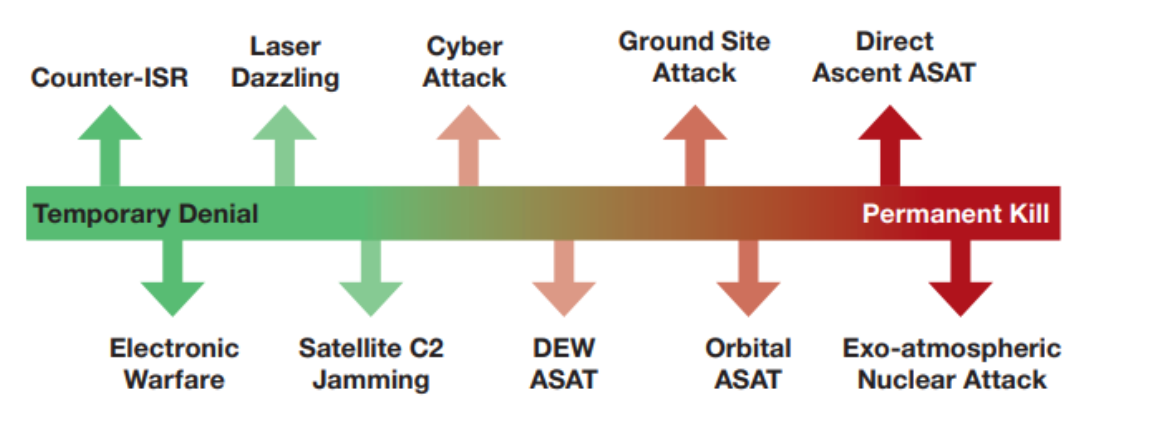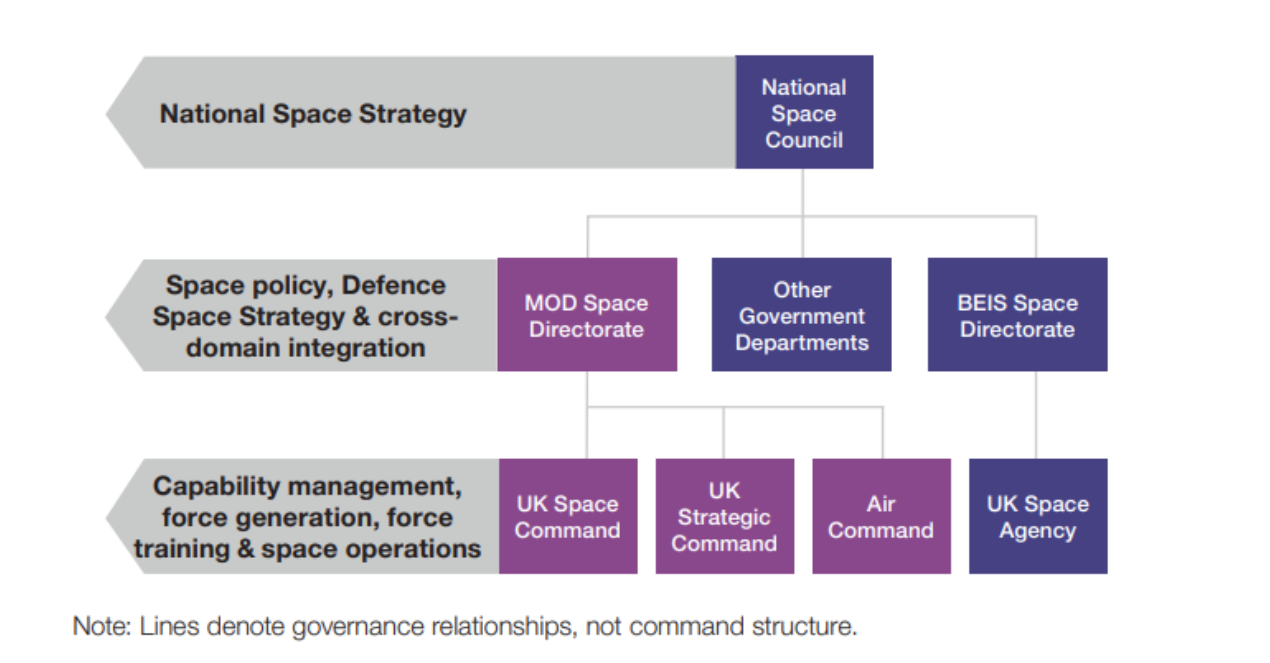
Blog written by Reg Pula, ADS Defence Policy Advisor
Industry today welcomes the publication of long-awaited Defence Space Strategy (DSS), which sets out a vision for Defence as a global actor in the Space domain, linking in with the National Space Strategy, the Defence and Security Industrial Strategy, and the Integrated Review.
Space Threats, Alliances and Diplomacy
The Defence Space Strategy (DSS) begins with an analysis of threats to the space domain, which it recognises range from electronic warfare to kinetic attack.
The DSS particularly highlights the potential of cyber threats to deny, disrupt or deceive satellite data, and the increasingly pervasive nature of adversarial space-based Intelligence, Surveillance and Reconnaissance (ISR). It explicitly recognises the actions of Russia and China as key international adversaries vis-à-vis the space capabilities (civil and military) of the UK and its allies.
As well as continued close engagement with Five Eyes partners, the DSS commits to further enhancing the UK’s cooperation with NATO and continuing to seek opportunities for other bilateral relationships. An important example of the UK’s active involvement in multinational space operations is through the Combined Space Operations Centre – a strategic space partnership between the US, UK, Australia and Canada including collaboration with France, Germany and New Zealand.
The DSS also sets out the UK’s strong diplomatic leadership such as the landmark UN General Assembly Resolution on Reducing Space Threats through Norms, Rules and Principles of Responsible Behaviours, which seeks to increase the international regulation of the Space domain.
Industry – capability and prosperity
The DSS recognises the important role of the private sector and the UK Space industry in the development of the UK’s space capabilities, as well as its contributions to prosperity and Levelling Up across the whole of the UK.
The DSS recommits to the headline investment of more than £5Bn over the next ten years to enhance UK satellite communications capabilities, as well as a further £1.4Bn in space over the next 10 years for novel technologies. Furthermore, as the MoD develop its Defence Space Portfolio, the DSS commits to providing industry with clear guidance regarding the new technologies it requires – including what areas it sees as strategic imperatives to be provided onshore and what areas can be procured as assured capability (providing operational independence) from a broader range of suppliers. This approach is split as follows, aligning with the more nuanced approach highlighted in the DSIS:
- Own – Where the UK has leadership and ownership of new developments. This will always involve elements of collaboration and access.
- Collaborate – Where the UK can provide unique contributions that allow us to collaborate with others to achieve our goals.
- Access. Where the UK will seek to acquire critical science and technology from elsewhere. This will always be conducted within the bounds of the MOD’s Assured Capability Framework.
In addition, the DSS maintains that it will explore use of the National Security Strategic Investment Fund, the government’s corporate venturing arm for dual-use advanced technologies, as a vehicle to shape commercial Space development for Defence needs.
The DSS also sets out the closely partnership required across government, in industry and academia, to drive innovation within the UK and grow the UK’s strategic advantage in S&T.
Strategy and Approach
The below diagram sets out the DSS’ underlying strategic approach.
To deliver on the DSS vision and the Defence contribution to the National Space Strategy, the MoD will:
- Enhance its Space Domain Awareness to understand the risks to the integrated force in, from, or through space.
- Deliver the Defence Digital Backbone that will process, analyse, fuse, attribute and disseminate high quality information in real time to the warfighter.
- Deliver the first in a series of constellations of novel and multi-spectral sensors to sense, track and attribute challenging targets on Earth.
- Understand, design and field technologies to protect and defend UK interests in or from space.
- Enable operational freedom by securing access to, and sufficient rights of use in, technical data to enable innovation and continuous improvement of our information advantage.
Priorities
The DSS builds on the priority capability themes outlined in the National Space Strategy:
- Secure Satellite Communication: The Government will invest nearly £60M of additional funding in Skynet and other SATCOM capabilities to enhance the UK’s ability to transfer large volumes of data globally, rapidly and securely, connecting the modern battlefield and integrating the force.
- Space Domain Awareness (SDA): The Defence SDA programme, which will be boosted by an addition of over £85M over the next 10 years, will augment and contribute to existing allied and commercial data sources using assured sensor capabilities required for national object classification and attribution.
- ISR: The Government will invest over £970M in additional funding over the next 10 years to develop a range of cutting-edge technologies to generate a flexible, resilient suite of on-orbit sensors, extending the digital backbone into space and Synthetic Aperture Radar constellations. It will also deliver a combined series of on-orbit and ground-based demonstrators over the next four years that provide the foundation for a space-based ISR constellation, and the optimal cost-effective multi-sensor ISR capability. This will include integration with Five Eyes partners to demonstrate an integrated system by 2025, as well as delivery of satellites with advanced sensor capabilities, achieving an Initial Operating Capability in 2025.
- Space Command and Control: The Government will invest over £135M in additional funding over the next 10 years, in order to: 1) Build on the establishment of UK Space Command; 2) Continue to enhance the UK Space Operations Centre, in partnership with the UK Space Agency;|3) Conduct an extensive Training Needs Analysis to determine how to best to grow UK expertise.
- Space Control: The Government will invest over £145M in additional funding over the next 10 years to protect and defend UK interests and national security objectives within the space domain.
- Position, Navigation and Timing: The Government will continue to support an extensive cross-government ‘system of systems’ approach to develop secure and resilient PNT to meet wider societal requirements.
- Launch: The Government maintain a requirement for assured access to commercially developed launch capabilities.
Governance
Finally, the below figure demonstrates the governance of space.
The Direct Defence activity is the responsibility of MOD Head Office, with the Space Directorate, under leadership of the 2-star Director Space, cohering MOD Defence space governance, policy, strategy planning and international engagement in support of the National Space Council.
For any questions or further information, please contact Reg Pula, ADS Defence Policy Adviser at reg.pula@adsgroup.org.uk








